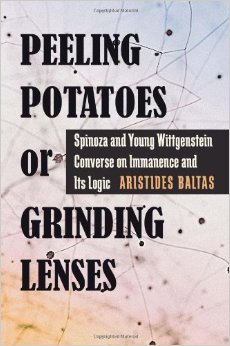Product desciption
Peeling Potatoes Or Grinding Lenses Spinoza And Young Wittgenstein Converse On Immanence And Its Logic Aristides Baltas by Aristides Baltas 9780822977902, 0822977907 instant download after payment.
More than 250 years separate the publication of Baruch Spinoza’s Ethics and Ludwig Wittgenstein’s Tractatus Logico-Philosophicus. In Peeling Potatoes or Grinding Lenses, Aristides Baltas contends that these works bear a striking similarity based on the idea of “radical immanence.” He analyzes the structure and content of each treatise, the authors’ intentions, the limitations and possibilities afforded by scientific discovery in their respective eras, their radical opposition to prevailing philosophical views, and draws out the particulars, as well as the implications, of the arresting match between the two.
Aristides Baltas teaches at the National Technical University of Athens (NTUA), Greece. He is coeditor of Scientific Controversies: Philosophical and Historical Perspectives.
“In Aristides Baltas’s widely learned and bracingly surprising interpretation, God for Spinoza and Logic for Wittgenstein emerge as specific expressions of the human need for an absolute authority from whose point of view the whole of reality or language can be understood and evaluated at once. Spinoza and Wittgenstein emerge, in turn, as implacable enemies of any such authority and make common cause against its claims to legislate what can be thought, valued, and done. Controversial and fascinating, the book is bound to provoke intense discussion and—more important—serious thought.”—Alexander Nehamas, Princeton University
“Aristides Baltas has a well-deserved reputation for eloquence, erudition, and keen philosophical insight. Peeling Potatoes or Grinding Lenses will do nothing but enhance this reputation. Baltas argues the initially somewhat implausible claim that there is a strong and meaningful structural analogy between the positions of Spinoza and Wittgenstein, which Baltas calls radical immanence, to the effect that there is no philosophical viewpoint outside of the world and language and thought. It is fascinating to watch Baltas carefully, precisely, and in loving detail erect his argument from the historical texts and then defend it in his inimitable elegant fashion. This is a book to dwell in with enormous rewards. I recommend it wholeheartedly.”—George Gale, University of Missouri-Kansas City
“The key idea from which Aristides Baltas develops his parallel treatment of Spinoza and Wittgenstein is immanantism: Logic is in language for Wittgenstein just as God is in the world for Spinoza. To Baltas, each thinker insists upon immanence at the very moment at which a prior tradition of thought had recourse to an appeal to transcendence. In both cases, this undoing of traditional assumptions leads to a thesis about the impossibility of philosophy as traditionally conceived and a rejection of any point of view outside world, language, or thought. This is an outstanding book and obligatory reading for anyone interested in both Spinoza and Wittgenstein.” —Jim Conant, University of Chicago
“Baltas’ engaging writing style pulls readers into a panoply of fascinating and creative insights on God, logic, language, and mysticism. Good references and index. Highly recommended.”—Choice Magazine


